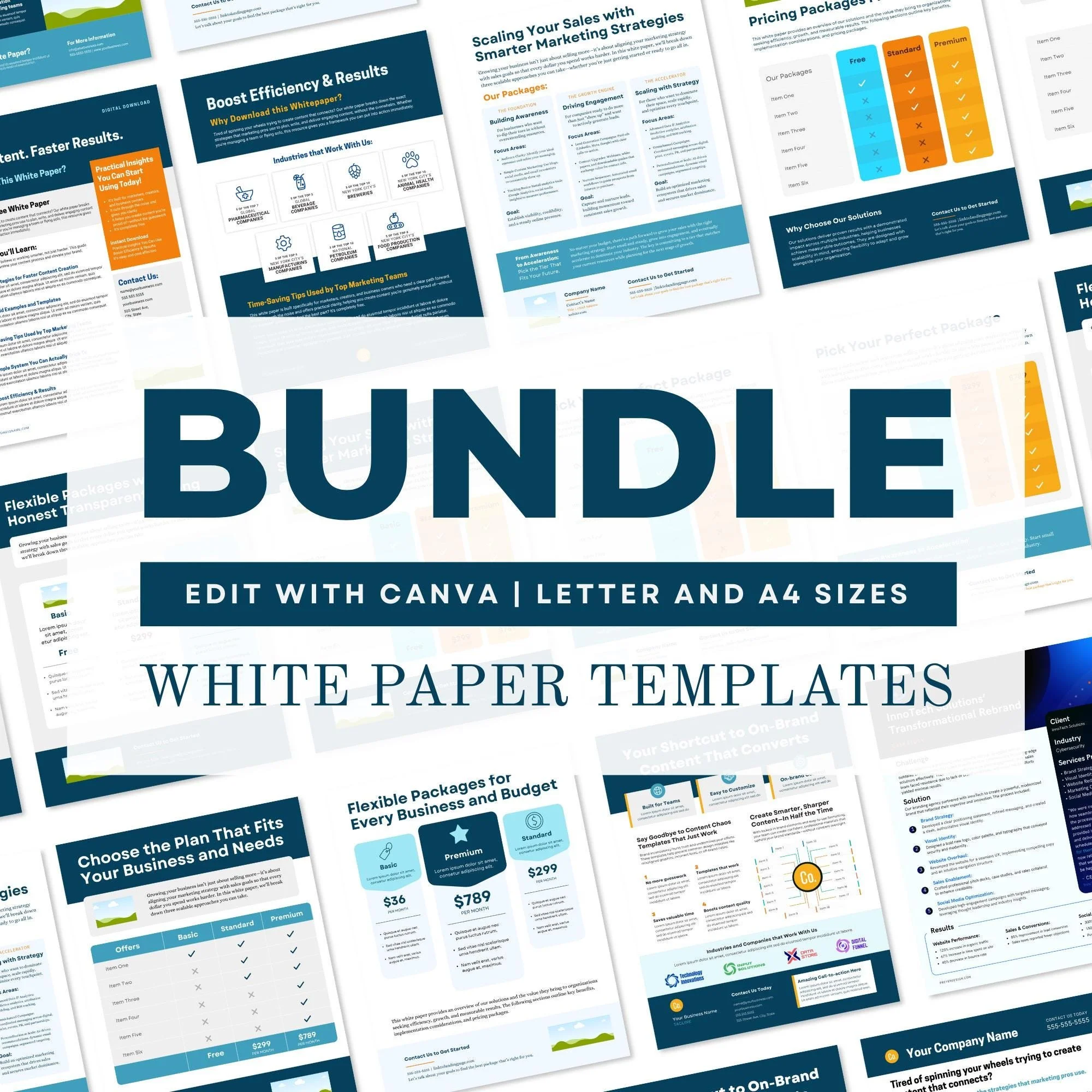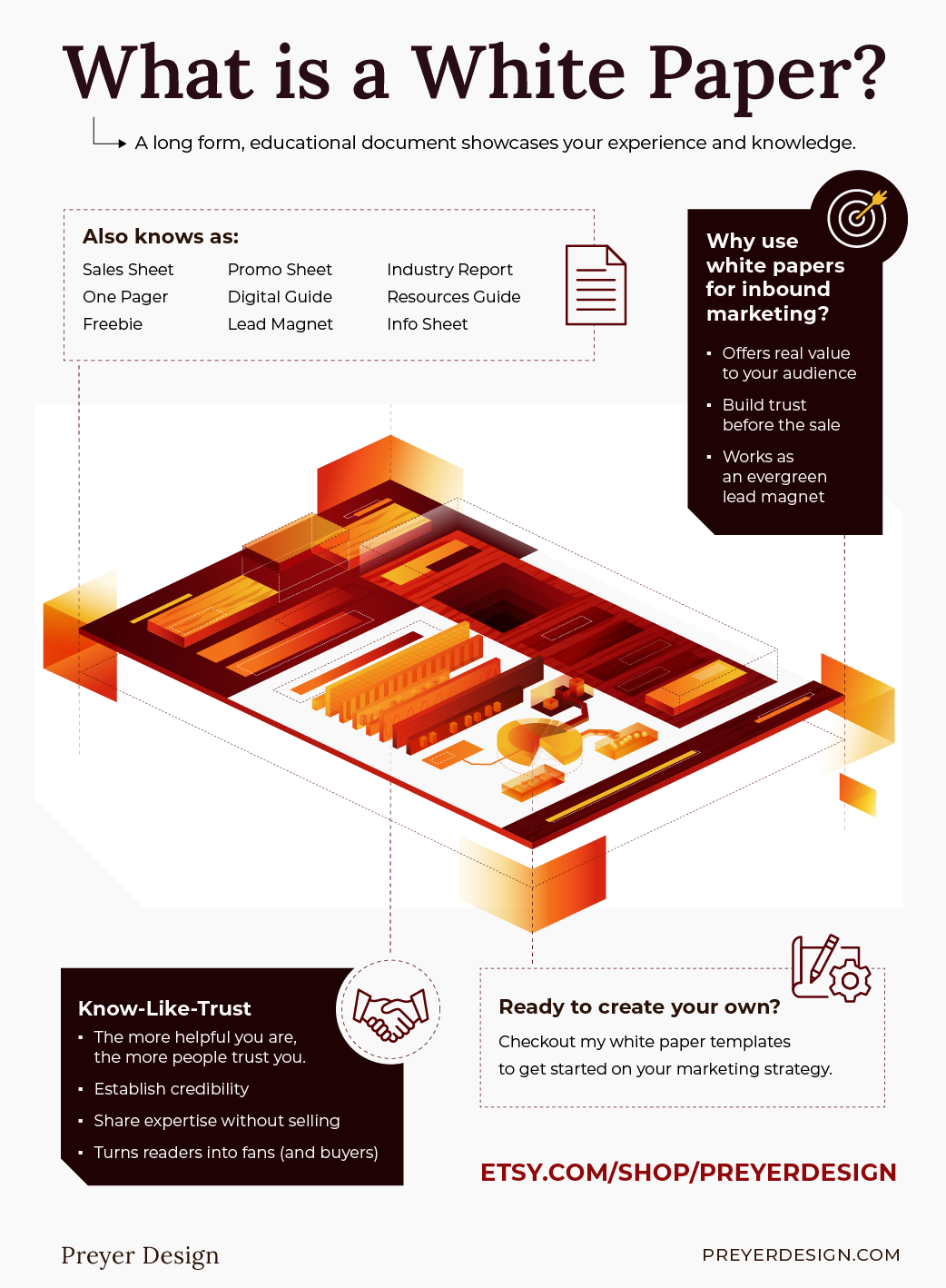How to Use White Papers to Grow Your Business and Your Email List
You don’t have to be a Fortune 500 company—or have a fancy MBA—to take advantage of the power of white papers. These strategic, value-packed documents are no longer reserved for stiff corporate boardrooms. In fact, if you're an entrepreneur, creative, or small business owner trying to grow your audience and build trust online, white papers might just become your new best friend.
Let’s talk about how you can use them to drive traffic, grow your email list, and position yourself as the go-to expert in your space.
What Is a White Paper? (And What Else Is It Called?)
At its core, a white paper is a long-form, educational piece of content that dives deep into a specific topic. It’s meant to inform, not just promote. Think of it as a mini-masterclass in PDF form.
Depending on who you're talking to, white papers might also go by:
Sales Sheet
One Pager
Freebie
Info Sheet
Promo Sheet
Digital guides
Industry reports
Lead magnets
Resource guides
Even ebooks
While the format can vary, the goal is the same: deliver serious value to your audience while showing them you know your stuff.
Why White Papers Work for Inbound Marketing
Let’s do a quick recap of inbound marketing: it’s all about pulling people toward your business naturally—by giving them something they actually want or need. Instead of chasing cold leads, you’re building meaningful connections by offering helpful, high-quality content.
And guess what? A white paper is the perfect inbound tool. When someone lands on your site and sees a free resource that helps them solve a real problem, they’re way more likely to say, “Yes, I’ll trade my email for that.”
It's like the grown-up version of trick-or-treating—only the candy is a smart, actionable guide that keeps them coming back for more.
The Know-Like-Trust Factor
The more free value you provide, the more your audience will start to:
Know you
Like you
Trust you
And once that happens, you’re not just another business—they see you as a reliable expert. A white paper helps you show (not just tell) that you understand their struggles and you’ve got real solutions.
People might find you through a blog post or ad, but a white paper gives them a deeper reason to stick around.
What Happens After They Download?
So they downloaded your guide—what now?
Here’s where email marketing steps in. Once you’ve got that email address, you can start sending a simple follow-up campaign to keep the conversation going. A few ideas:
Share extra tips or bonus content related to the white paper
Invite them to a free consultation, webinar, or service
Offer another helpful resource that leads naturally into your products or services
It’s like a friendly drip of value that keeps your audience engaged, without overwhelming them (or your schedule).
Want to Create a White Paper Today?
Here’s the best part: You don’t need to spend hours writing, designing, or formatting from scratch.
👉 I’ve created easy-to-use Canva templates that help you design a white paper that looks professional, reads clearly, and gets results.
Pro Tip: Promote It with Ads
Want to grow your list even faster? Don’t sleep on running ads to your white paper.
A well-targeted ad on platforms like Instagram, Facebook, or LinkedIn can:
Drive high-quality traffic to your site
Reach cold audiences who are already searching for solutions
Turn casual scrollers into warm leads who are ready to learn more
White papers + paid traffic = marketing magic.
In Conclusion
White papers aren’t just for tech companies and government reports. They’re one of the smartest, simplest ways to build credibility, grow your audience, and create long-term trust with your ideal clients.
You’ve got the knowledge—now it’s time to share it.
Grab a Canva template, write your first (or next!) white paper, and start turning traffic into relationships that actually grow your business.









